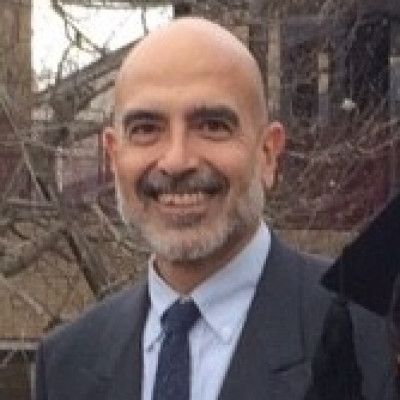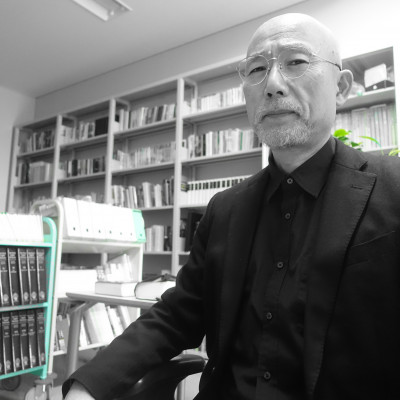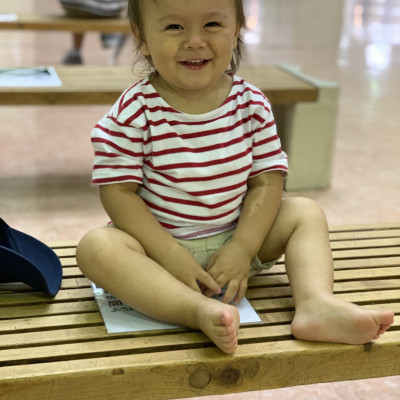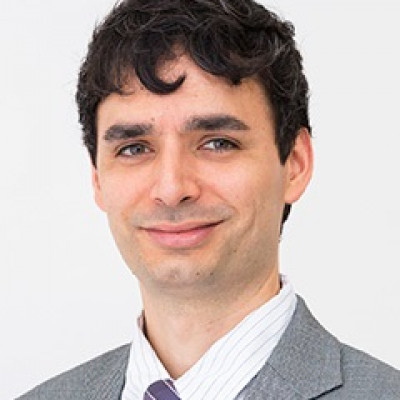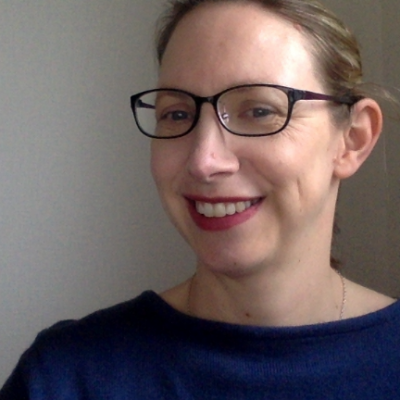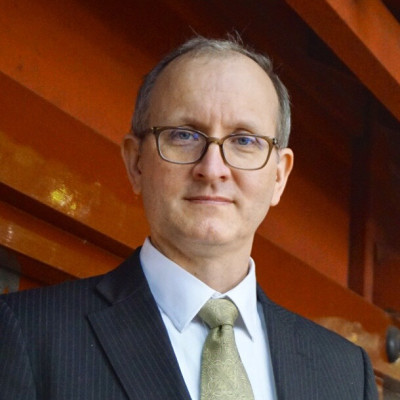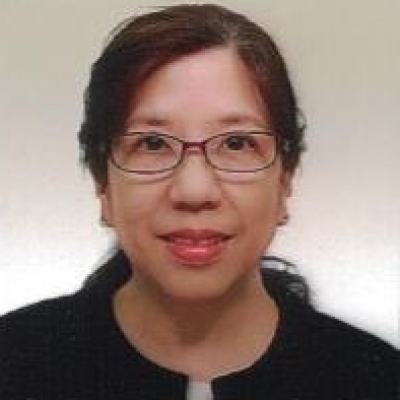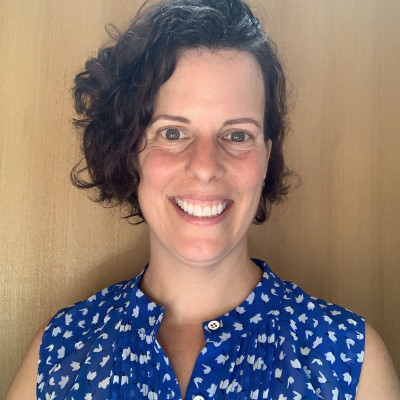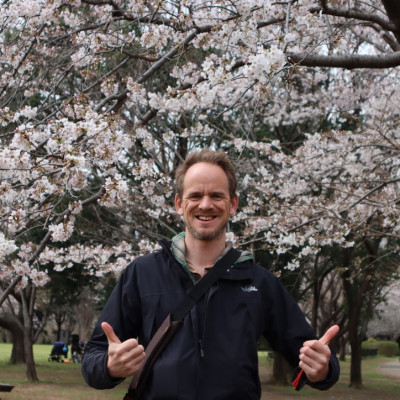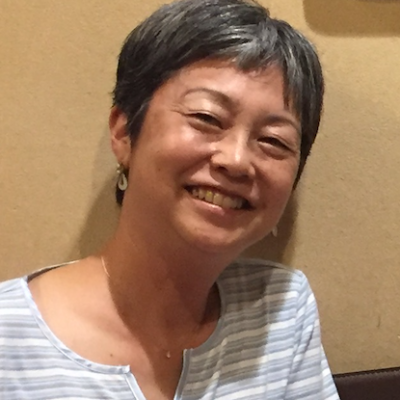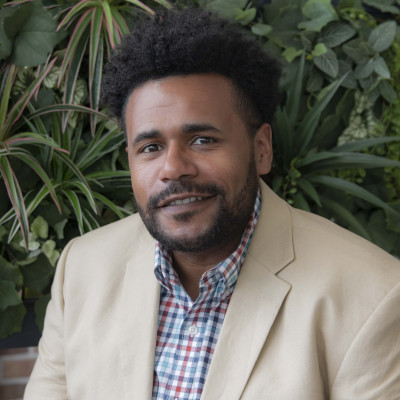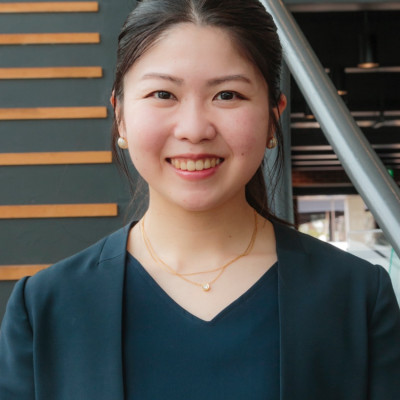Sessions / Learner Development
Cancelled The critical role of the teacher in the Self-Directed Learning (SDL) class #2915
Teachers and students have pulled through two years of online learning, gaining new information and technological (ICT) skills, studying self-directed learning skills, and demonstrating an adaptability to sudden and unexpected change. When our post-pandemic world finally arrives, how will we have changed? Dewaele and Mercer (2018) examined teacher attitudes and the necessity of a high level of emotional intelligence (EI) and self-efficacy to connect with students. This human connection between teacher and student is critical in all modes of education, face-to-face, online, blended, hybrid, or hyflex. Martin’s (2013) research on student adaptability to uncertainty and novelty is useful in helping teachers guide, advise, coach, challenge, and believe in students. In this presentation, the presenters reflect on various self-directed learning (SDL) courses they have taught in the past two years and re-consider the indispensable role of the teacher in fostering new skills in our students to learn without us. Data from open-ended and multiple-choice questionnaires, interviews, and actual work from first- through third-year students are used in this interpretative evaluation of the teacher's role and influence in the SDL classroom. The presentation will conclude with suggestions for SDL teachers.
Cancelled EFL teachers’ perspectives on the interface between autonomy and agency #2978
While learner autonomy and student agency are widely known concepts within language education (Benson & Cooker, 2013), these constructs have largely been treated as separate and distinct, possibly competing, or mutually exclusive. The increased use of online learning during the global pandemic has again raised the issue of learner autonomy and the spaces within which learning takes place (Benson, 2021). This makes the examination of the interface between learner autonomy and student agency even more important to investigate as teachers and students return to face-to-face classes. Using qualitative interview data with two EFL teachers from two private Japanese high schools, the presenter will examine how these teachers conceptualise the interface between learner autonomy and student agency within their own lived experiences of teaching in Japan. The insights from this research suggest that there is a need to consider the impact of the social space on whether students display autonomy or not. Such a focus includes classroom management by teachers, teacher development, as well as institutional barriers and cultural practices that encourage or discourage students from taking more responsibility for their learning. Finally, this research also lets us probe whether learner autonomy and student agency are really completely distinct concepts.
Benefits of using Language Learning Histories (LLHs) in teacher training #2975
Successful language learners need to learn beyond the classroom (Richards, 2015). These contexts enable learners to develop and exert their learner autonomy, as they decide what and how to learn. This presentation focuses on experiences with two Malagasy student teachers co-authoring a paper in which they tell their English language learning histories (LLH) beyond the classroom. Beyond the classroom, every learner has their own ways of learning, which may depend on their learning contexts and their motivation and interests. Through writing LLH, the student teachers realized how their interests constantly triggered their motivation to create opportunities to learn outside the classroom, a context where support is scarce. They also became aware of the disconnection between in-class and out-of-class learning content. These experiences helped them reflect on their future practice and how they would like to implement classes. Through the process of writing experiential narratives in the paper, we were able to make some significant insights on the potential benefits of the use of LLH in language learning and teacher training. Accordingly, participants will leave the presentation with a deeper understanding of learner experience and autonomy that can help them in developing practices to facilitate language learning beyond the classroom.
Teaching Self-study: Ideas to improve Self-study Habits #2843
The presenter will share ideas for guiding students from ‘I don’t know what to do’ to ‘now I know what to do’. The ideas include: setting goals, mental preparation for daily self-study activities, Learning Cycle, and note-taking strategies. English as it is taught in classrooms often focuses on testing students rather than on having them acquire learning skills. Learning strategies should be taught explicitly to enable our students to acquire learning skills. Learning Cycle, Active Recall, and study habits are three theoretical paradigms the presenter encountered in recent years. Learning takes place when students have opportunities to repeat the content. One effective strategy is using the Learning Cycle. The famous Feynman Learning Technique is one of the variations of the Learning Cycle. Active Recall can be used in connection with the Learning Cycle. Simply said, Active Recall is an act of self-questioning. By using Learning Cycle with Active Recall, the content can be repeatedly reviewed by students. Next, the presenter will share his collection of note-taking styles including some unique note-taking styles. At the end of the presentation, the results of the presenter’s own action research in this area will be shared.
Developing a system for student self-evaluation in speaking classes #2717
A common classroom challenge is evaluating student oral production, particularly in classrooms where students speak in small groups as limitations of teacher and classroom lesson time make providing individualized feedback impractical. In this practically-oriented presentation, the presenters introduce a system developed to make lessons more student-centered, promote learner autonomy, and facilitate student reflection. The system enables students to self-evaluate their speaking through recording and transcribing their oral production using freely available online tools. The presenters describe the development process for the self-evaluation rubric. The rubric went through multiple iterations from one originally intended for teachers, which was unwieldy for students to use, to a simpler, more focused student-friendly rubric. As a result of this change to the class system, students could self-evaluate their production and solicit individualized feedback from instructors concerning self-selected topics of interest. The presenters also share student reflections and feedback. Specifically, students observed that focused self-assessment helped them better understand and implement the conversation strategies featured in the class textbook. As these techniques are compatible with online and face-to-face instruction, attendees will gain an understanding of how to implement similar strategies in their teaching without relying on the online technologies used.
Cancelled Induction program for high school students: Effectiveness and implications #2885
High school students are often anxious about their new university life and do not know what to expect in English classes at the tertiary level. Furthermore, students may feel apprehensive about classes that have to be conducted online due to the current COVID-19 situation. In order to address these concerns, an online English workshop was conducted once a week over a period of three weeks to help students improve their English communication skills and create opportunities for them to interact with the language center tutors. This presentation outlines the content and implementation process of the workshop. An online questionnaire was given to the participants (n=58) and tutors (n=4) to collect feedback after each session. 97.3% of the participants indicated that they were very satisfied and satisfied with the content of the workshop. 81.4% found the content manageable and 6.5% found it a little difficult. 90% of them stated they had gained the skills required to attend online classes. As for the tutors, the satisfaction level of their facilitation skills increased from 62.5% to 75%. The results also suggested that participants felt less anxious about their new college life after the workshop. The implications of this project will also be discussed.
Supplementing self-study to four EFL University Students Online Learning #2956
This presentation will show how a self-study planner assisted four EFL students whilst they took mandatory university courses online over two semesters. The university of this preliminary study moved all integrated English classes online using Zoom due to the coronavirus. Approximately each class had twenty students, making it difficult for teachers to talk to students one-to-one perhaps missing out on important instruction. Furthermore, as students were not on campus, they did not have the chances to talk to other students in English outside class time. With four first year students, the instructor made a planner and reflection sheet so that students could plan and track their personal language learning goals. Data was collected using mixed methods by collecting planners, conducting monthly questionnaires, and an interview at the end of each semester. Participants attending will learn how the planner was designed, distributed, and utilized so that students could take control of their learning, and plan more efficiently. Moreover, students’ comments will show that the planner helped them to stay on course for various external exams, and study programs they undertook whilst away from campus. In addition, mistakes and deficiencies of the research will be presented providing hints as to what not to do.
Contextualizing Genre through Exploratory Practice #2720
In a time of uncertainty caused by the global pandemic, more than ever, many students are questioning their present education and its relevance to their current needs and future goals. It is an opportune time to invite critical inquiry in the classroom and work together as teacher and students to understand the contemporary language classroom experience. In one such class, a university freshman English Genre reading and writing class, the teacher and students piloted a style of classroom practitioner research called Exploratory Practice (EP) in order to better understand the current learning experiences of Japanese English learners. The hope was to contextualize the course’s Genre approach in order to maintain cultural and social relevance to the acts of language learning and teaching. EP is practitioner research that invites all classroom participants to explore their language learning experiences via “existing classroom practices” (Allright, 2003). The presenters will report on what context EP provided to the Genre reading and writing processes as well as whether this pilot fulfilled course objectives. Analysis of student projects reveals that students personalized their research projects and demonstrated successful use of genre conventions.
Student-designed and student-led online activities for English practice #2888
While there are many ways to reimagine language education, one way in which the presenter has attempted to do this is through Project-Based Learning (PBL) as this form of student-centered collaborative learning encourages active involvement in the learning process (Cocco, 2006 as cited in Kokotsaki, Menzies & Wiggins, 2016). This presentation will therefore describe a university course in which students engage in PBL through organizing their own online activities for English practice. While the presenter provides support when necessary, students are given complete control and are expected to take full responsibility as they work together to plan, prepare, and hold their English activities about three times a semester. Based on participant feedback about earlier activities, as well as the student organizers’ own reflections on their experiences, students in the course are encouraged to consider how to improve future activities. This presentation will first look at what is involved in offering such a PBL-oriented course, including the usual steps taken for organizing an activity. Next, examples of some of the activities held will be shown. Finally, based on students’ reflections and feedback, as well as the presenter’s own observations and reflections, potential challenges and benefits of such PBL will be discussed.
Learners’ views of self-regulated EFL learning: An interview-based study #2892
Technological innovations and the emergency remote teaching during the COVID-19 pandemic have generated adjustments in classroom practices as well as a growing focus on outside-class autonomous and self-regulated learning (SRL), commonly determined by learners’ agency that requires capacity and will (Oxford, 2017). To gain insights into the learners’ perspectives, experiences and approaches regarding their SRL, semi-structured interviews were conducted among 17 relatively proficient Japanese university students. The vast amount of data collected and analyzed through thematic content analysis reveals the learners’ (1) views on Japanese EFL education and the importance of SRL, (2) perceived difficulties in EFL learning, (3) use of digital learning tools, (4) several workable SRL approaches and (5) abilities to control their commitment, satiation, emotion and environment in their outside-class SRL (Tseng et al., 2006). This study inquired among a limited sample of high achievers; however, it uncovers – for instance – Japanese EFL learners’ desires for contextual and communicative approaches as opposed to the generally experienced grammar-translation method, learners’ outside-class initiations in organizing learning groups, or their limited use of digital means. Furthermore, it may serve as a base for teacher development and further research including more variability in learners’ levels of education, EFL proficiency or SRL competence.
Addressing basic psychological needs through a teletandem language exchange #2718
Even before the Covid-19 pandemic, educators have been using telecommunication tools to facilitate collaboration between students in different locations. This telecollaboration can be particularly productive for language learning, as learners of two different languages can be paired for a supportive language exchange project, which provides opportunities for authentic language communication which may be otherwise hard to find. This kind of virtual language exchange is called teletandem.
In this presentation, research findings will be shared from a longitudinal extracurricular teletandem project between students at a university in Japan who are learning English, and those studying Japanese at partner institutions. Several students were interviewed 6 months after taking part in the teletandem exchange, to investigate 1) how they conducted the exchange and negotiated language use with their partner, and 2) how the experience of joining the exchange has influenced their experience of learning their target language. By applying concepts from self-determination theory (Deci & Ryan, 1985) to the interview data, the project investigates to what extent a teletandem exchange may enhance intrinsic motivation to learn a language by supporting learners’ basic psychological needs.
Boost Motivation and Achievement with a SMART Class Design #2959
Many university instructors of low-level English students carry the burden of teaching lethargic, unmotivated classes - a burden increased by online teaching during the COVID-19 pandemic. Research into student motivation can ease the burden, but understanding and applying that research to actual classroom learning is challenging and time-consuming. As stated by Self Determination Theory, students who feel a sense of improvement and achievement within their learning over time are expected to be more motivated to put effort into their work. This presentation will show how a 5-part SMART checklist (not to be confused with SMART goals) created by the presenters can be used to better clarify the efforts that students are expected to make within classes by defining the language use which will be assessed, as well as how their performance will be measured. A full explanation of the SMART checklist acronym will be given by the presenters and examples of how it can be applied to help English communication courses shown. Furthermore, a simple formative assessment sheet, which aligns with the checklist to help students identify their strong and weak areas, will be presented as a practical way for teachers to help students improve their performance autonomously over time.
Teacher reflections on a student-led group seminar project #2847
Project-based learning (PBL) is a progressing development in education that suggests tremendous benefits for learners, such as mastering 21st-century academic skills, developing learner autonomy, increasing motivation, and building group dynamics through collaborative work. In this presentation, the authors will attempt to demonstrate the accuracy of the above statement by reflecting on the effectiveness of the PBL approach which they implemented in a student-led group seminar project for an advanced English course at a private university in Tokyo. After providing a brief overview of the PBL approach and a complete description of how each stage of the student-led group seminar project relates to this approach, each instructor will report their unique observations of the project flow in their classes together with observations regarding whether the educational benefits of PBL were achieved. In addition, ways in which the project could be further improved to better facilitate learning outcomes of the PBL approach will also be discussed.
Cancelled Flexible strategies to build a community of learners #2734
It is difficult to anticipate what education in the post-pandemic world might look like. However, teaching during the pandemic taught all of us the importance of flexibility in our approaches to teaching. This presentation will describe two technology mediated strategies that build a community of learners by enhancing teaching and social presence in our lessons. Specifically, the presenter will describe the use of screencast feedback to enhance teaching presence and weekly self-reflection ‘exit tickets’ to enhance social presence. While both approaches were originally developed in face to face classes, they have been successfully implemented in hybrid and online classes (both synchronous and asynchronous). These approaches were found to diminish the feeling of isolation in online learning environments and to strengthen the rapport between students and teacher in both online and face to face lessons. Further findings indicated that these strategies led to increased motivation and task engagement. This presentation will be of particular interest to educators looking for flexible approaches to improve teaching and social presence that can easily be adapted to a variety of teaching situations.
Are SMART goals a smart way to reduce anxiety and increase motivation? #2875
In Japanese universities, instructors are familiar with the phenomenon of the silent classroom. Issues of low motivation and performance anxiety can lead students to stay quiet instead of taking risks and making mistakes—which are integral parts of foreign language learning—and this reluctance is not conducive to improving one’s L2. Researchers have explored different methods of instruction to cope with the issue of student anxiety. One potential solution is to increase student feelings of self-efficacy by guiding students to set and achieve realistic goals. The concept of SMART Goals (Specific, Measurable, Achievable, Realistic, and Time-based) was introduced to first- and second-year students in five different courses (N=79) at the beginning of their second semester. The five courses included one JSL course, two non-English major EFL courses, and two English major writing courses. A questionnaire targeting feelings of anxiety and adequacy in the foreign language classroom was given to the students before and after developing SMART goals. Drawing on the questionnaire data, the presenters will report on their counterintuitive findings about the relationships between student anxiety, motivation and enjoyment as students refined their personal SMART goals over time.
The critical role of the teacher in the Self-Directed Learning (SDL) class #2914
Teachers and students have pulled through two years of online learning, gaining new information and technological (ICT) skills, studying self-directed learning skills, and demonstrating an adaptability to sudden and unexpected change. When our post-pandemic world finally arrives, how will we have changed? Dewaele and Mercer (2018) examined teacher attitudes and the necessity of a high level of emotional intelligence (EI) and self-efficacy to connect with students. This human connection between teacher and student is critical in all modes of education, face-to-face, online, blended, hybrid, or hyflex. Martin’s (2013) research on student adaptability to uncertainty and novelty is useful in helping teachers guide, advise, coach, challenge, and believe in students. In this presentation, the presenters reflect on various self-directed learning (SDL) courses they have taught in the past two years and re-consider the indispensable role of the teacher in fostering new skills in our students to learn without us. Data from open-ended and multiple-choice questionnaires, interviews, and actual work from first- through third-year students are used in this interpretative evaluation of the teacher's role and influence in the SDL classroom. The presentation will conclude with suggestions for SDL teachers.
Exploring Project-Based Learning (PBL): Understandings, puzzles, practices #2974
This presentation focuses on how students and teachers at a university in Japan understand Project-Based Learning (PBL), what practices they see as central to PBL, and what puzzles come up for them as they do PBL. The background is a curriculum reform whereby an existing first- and second-year university research and writing programme is transitioning in 2022 and 2023 into PBL courses. In the new curriculum students will do at least three projects in one year where they identify and choose a problem in society that interests them, plan and do research, journal, and create a written product for each project - often using digital technology - to be published in a public forum beyond their immediate class. While students will, as now, do online research in each project, the new PBL courses will have a clear emphasis on students talking in each project with “close others” (other students, family members, people in local communities or local networks that students are part of). Other important differences and challenges will emerge as teachers and students experiment with PBL in 2022. From interviews, discussions, and written reflections, this poster presentation explores key learner development puzzles in teachers’ and students’ diverse PBL understandings and practices.
(Re)framing Mindsets/Attitudes to English Use in Japan #3121
"We are Japanese, our common language is Japanese so why should we speak to our peers in English?" This an oft heard refrain from not only my learners but also in society at large. While this might be true to a degree, in this presentation I will suggest some reasons why this might not be quite the right attitude towards gaining proficiency and may hold a key to Japan's stagnant global English proficiency rank. I will share some of the insights into what I learned during my work over the last several years with teachers and young learners in Nepal and in the Philippines. Both countries have fought, debated and glorified the role and impact of English, but have nonetheless claimed it as one their own. Japan has fought, debated and glorified the role and impact of English, but has not yet claimed it as one of their own. A small shift in perspective in our classrooms and in our teacher-training programs might go a long way in developing an "English-user" identity. In this brief talk, I hope to provide a few illustrations of how I came to this realization and how it might impact how we teach, the resources we use, and how our learners learn.
生徒のエンゲージメントと学習到達度・教師の指導には関係性があるか? #2716
言語学習エンゲージメントに関する研究が近年急増し(Hiver, Al-Hoorie, Vitta, & Wu, 2021) 、学習到達度との関係性(Fredricks, Blumenfeld, & Paris, 2004)に注目が集まる中で、国内の中学生を対象とした研究はまだわずかである。本研究では生徒のエンゲージメントと到達度に加えて、生徒のエンゲージメントと教師の指導についての関係性を量的に調査した。公立中学校2校の全校生徒と英語教科の教員を対象に、2021年12月に質問紙調査を実施した。分析ではエンゲージメントの尺度を開発したのち、生徒のエンゲージメントと到達度、および生徒のエンゲージメントと教師の指導の関係性を確認する。予測される結果として、生徒のエンゲージメントの高さは英語学習の到達度と関係性があり、教師の指導との間にも関係性があると想定している。発表では分析の結果を踏まえた上で考察を行う。
Word association and the L2 mental lexicon #2966
This presentation documents an attempt to better understand the L2 mental lexicons of a group of English language learners. To explore the relationship between word-association and learners’ lexical development, the researcher employed a psycholinguistic experiment - the word association test, based on Task 123 of McCarthy’s Vocabulary (1990: 152). A simple word association task comprising eight stimulus words was administered. Participants comprised low-level and high-level Japanese English as a Foreign Language (EFL) students and two high-level exchange students from Chile and Finland who were also EFL and English as a Second Language (ESL) learners, respectively. In the study, focus is placed on five types of word relations: contextual structure, (syntagmatic/paradigmatic relations), meaning (sense relations), extra-linguistic (encyclopaedic relations), frequency (collocation), and sound (clang associations). The results of this word association task did not exactly mirror the findings of Aitchison (2003). However, some clear similarities between the two studies were identified. The findings support the claim that the mental lexicon of the L2 learner is highly organized, and that word relations within the L2 lexicon are comprised of primarily semantic or lexical distinctions and not phonological ones.
Challenging Conventions: Opening up New Spaces in Learner Development (FACE TO FACE) #3108
This forum will examine how new learning spaces can help learners grow beyond conventional education environments. Presenters will explore holistic and ecological perspectives on learners’ growth, taking into account multiple aspects of their experiences, their interactions with others, and different affordances in diverse learning environments and spaces. The forum will include both studies that shed new light on the impact of sociocultural and psychological factors on the development of learner autonomy, as well as practice-related accounts that explore learners’ practices in a range of learning spaces outside of conventional classroom settings. In the forum participants will have opportunities in pairs and small groups to discuss and reflect on different non-conventional environments, spaces, and processes that learners can access and/or use. The combination of these theoretical and practice-based perspectives will encourage us to think about learner development from fresh angles, not only under the current and post-pandemic situation, but also beyond, so that we can come away from the forum with fresh ideas for challenging conventions and opening up new spaces in learner development in our own learning, teaching, and research. Round One 11:50 to 12:20 Dominique Vola Ambinintsoa Razafindratsimba, Fanaperana Haingo Rajaonaritiana, Volatiana Olivia Rasoanindrina and Jenny Morgan Round Two 12:20 to 12:50 James Underwood, Gretchen Clark and Greg Rouault
Challenging Conventions: Opening up New Spaces in Learner Development (ONLINE SESSIONS) #2652
This forum will examine how new learning spaces can help learners grow beyond conventional education environments. Presenters will explore holistic and ecological perspectives on learners’ growth, taking into account multiple aspects of their experiences, their interactions with others, and different affordances in diverse learning environments and spaces. The forum will include both studies that shed new light on the impact of sociocultural and psychological factors on the development of learner autonomy, as well as practice-related accounts that explore learners’ practices in a range of learning spaces outside of conventional classroom settings. In the forum participants will have opportunities in pairs and small groups to discuss and reflect on different non-conventional environments, spaces, and processes that learners can access and/or use. The combination of these theoretical and practice-based perspectives will encourage us to think about learner development from fresh angles, not only under the current and post-pandemic situation, but also beyond, so that we can come away from the forum with fresh ideas for challenging conventions and opening up new spaces in learner development in our own learning, teaching, and research.
Round One 11:50 to 12:20 Phillip A. Bennett and Isra Wongsarnpigoon and Andrew Barfield
Round Two 12:20-12:50 Yuri Imamura and Michael Kuziw
Cancelled The motivational profiles of high school EFL learners in Hungary #2819
In recent years, L2 learning motivation has witnessed renewed interest due to the emotional dimension of the L2 learning experience, a key component of Dörnyei’s (2009) L2 Motivational Self-System. Still, few studies have focused on exploring potential subgroups of L2 learners; thus, the aim of this study is to explore students’ dispositions as to their L2 learning motivation and to investigate group-related differences. We conducted a large-scale questionnaire study (N = 1152) involving high school English learners (mean age: 16, mean age of onset for learning English: 9) from all over Hungary. The questionnaire – written in Hungarian, the participants’ L1 – included 90 items. The data were subjected to combined cluster analysis. The results showed that there were four latent subgroups underlying our sample. The members of Group 1 were more internally motivated, Group 2 was the least motivated, Group 3 was the most motivated, and the students of Group 4 had the most ambivalent level of motivation. We did not only find significant differences among the members of the four groups with respect to their motivation, but emotional experiences as well. Given the context-dependence of motivation and emotions, our study has important pedagogical implications for L2 teaching professionals.
